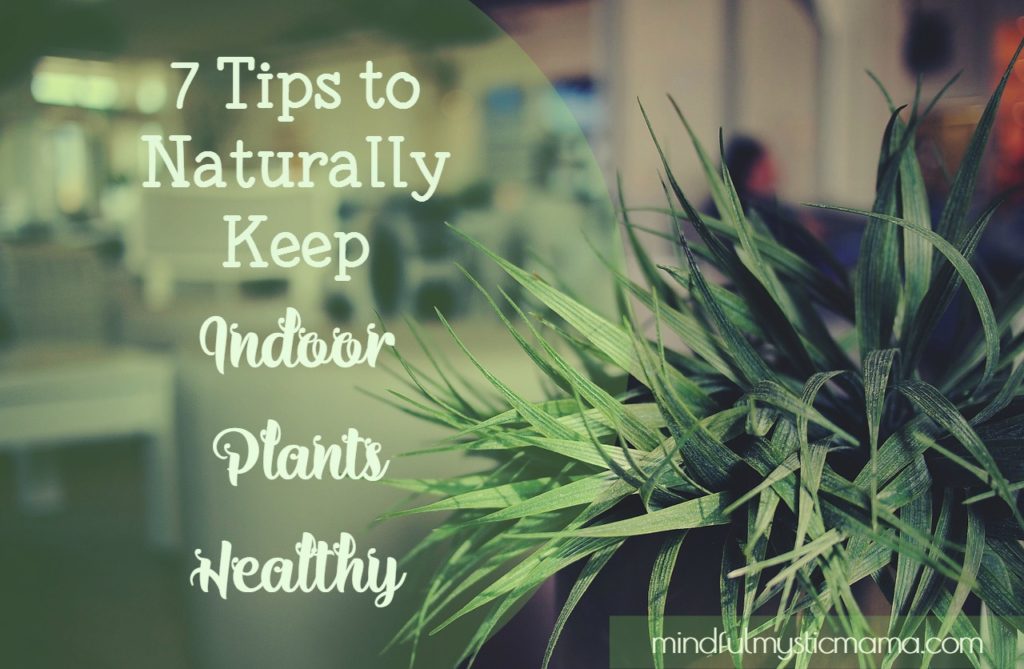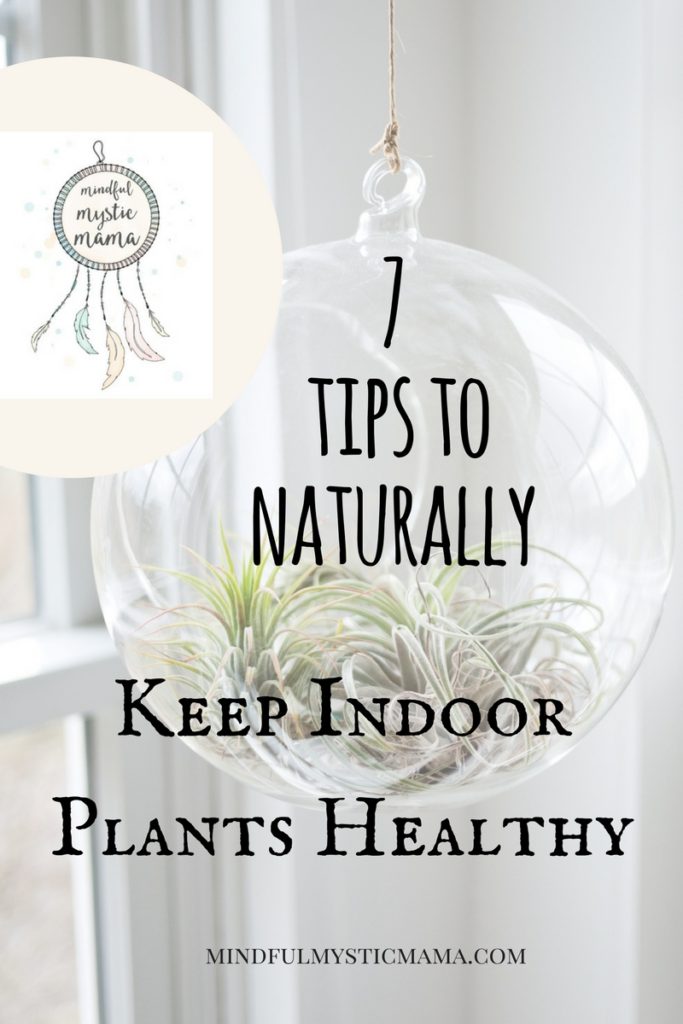The needs and requirements of our indoor plants differ from the needs of our outdoor ones. Receiving light through our windows, rather than from direct outdoor sunlight, creates a different scenario for houseplant maintenance.
Here, I have gathered some tips together for keeping our indoor plants healthy and happy, along with some ideas for imparting natural solutions to some common problems we may encounter while tending to our plants.
1) First of all, be sure to fertilize your houseplants by spreading some compost over the top of the soil. As you water, the compost will work its way down into the soil and begin to give the roots a good feed. This is essential for establishing and maintaining a solid, healthy foundation for your plants to grow from.
2) You will want to allow the soil to dry out before watering them again. Since they live in pots, houseplants are quite prone to over-watering. Their roots will rot, and you will see yellow leaves on the plant if they are over-watered.
3) When you do water, be sure to do so thoroughly. Make sure the water comes out of the drainage hole at the bottom of the pot. I have always done this with my plants, and I have had numerous encounters with spillage too, so I highly suggest keeping a plate or tea towel under your plant pot.
Rainwater is of course ideal, but you can use filtered or bottled water, or the water from a dehumidifier. If all you have is tap water, let it sit overnight in an open container before pouring it on your plants to allow some chemicals to evaporate.
4) Aerate the soil by gently poking and stirring it, preferably with something wooden. Try to steer clear of using metal objects for this, as they can upset the natural soil balance. I use chopsticks for this. Potted plants’ soil can get hard and compacted if it is not loosened by aeration – and keeping up with the practice will also his also help to prevent root rot.
5) Re-pot your houseplants periodically. As their roots grow, they will need larger containers. I’ve learned this the hard way! They may also need fresh soil from time to time.
Alternatively, you may also wish to trim the roots of some species instead of moving them to larger containers. This is best done with plants that have sturdier roots.
6) Be sure your plants are getting enough sunlight. South-facing or east-facing windows are best. Turn your plants if you see them slanting toward the light source, to balance out the growth of the plant.
If you don’t have enough natural light, you may wish to invest in a grow light. All you need to do with one of these is hang it over the plants, and keep it on for about 8-12 hours a day.
7) Be very gradual if you move your houseplants outdoors during the warm weather, and then indoors when it gets colder. As the weather cools, start by putting the plants indoors only at night.
Then, put them inside for a few hours each day, increasing the time the plants are indoors every few days. As the warmer weather comes on, start by moving plants outdoors during the day for a few hours at a time.

Some Common Houseplant Problems And How to Solve Them Naturally:
- If you suspect insect infestation, or if you wish to prevent it, here are some natural ways to keep bugs from destroying your houseplants.
* Bay Leaves are a very effective bug repellent. Break up a few leaves and sprinkle them over the top of the soil of the plant. You may also wish to place some bay leaves around the base of the plant pot.
* Neem Oil is a natural insecticide. You can buy a concentrated form of neem and add it to water, or purchase a commercial neem-based insecticide.
* Soap Insecticide is very effective, especially against white fly and aphids. Use one teaspoon of natural liquid soap to one quart of water, mix this up, and then spray it on your plants. Be sure to get under the leaves as well. If the problem is a very bad one, cover the pot with your hands and turn the plant upside-down into a pan of soapy water. This will dip all the foliage into the solution.
- Fungus can be controlled by the above-mentioned neem oil. You may also wish to use a tablespoon or two of vinegar to one gallon of water to make a natural fungicide.
I hope this article helps you out with growing and maintaining a lush, healthy, happy indoor plant garden! They are so beneficial to us, in so many ways (please see my article on plants that can help clean indoor air). Quite honestly, I don’t think I could ever be without a large population of plants in my home.


I have such a black thumb when it comes to plants that I will definitley try some of these.
Such Great Tips I Need All The Help I Can With Plants Thank You!1
Great tips. Ths is my first year keeping houseplants and I need all the help I can get.
Great tips! I have no problem growing plants outside, but indoor gardening is not my forte. Hopefully this post will change that.
I need this post because all I do is kill plants 🙁
I never knew that about tap water, I use it all the time, wonder what will happen if I change water. thanks
I’m definately going to be using some of these tips.
I’m great with outdoor plants, but indoors? No way. Die, die, die. I’ll be putting your tips to use!
I really like your tips on keeping insects off in a natural way!
I’m terrible about keeping house plants alive. I guess because I don’t fertilize, seldom (if ever) repot and am lucky if I remember to water. LOL Thanks for the tips for the next house plants I have!
These are great tips which I will definitely pay attention to because I have a black thumb!
These are good tips for keeping plants alive and healthy. I am setting up an indoor garden so I appreciated reading this now.
I love these tips. I am not one they call green thumb on inside plants.
great tips all my indoor plants just seems to die easy maybe is my cat but I think I’ll give it a try and follow your tips.
I would love to have more plants indoors but we are n a townhouse with someone on both sides with only 1 large window downstairs.
I have no green thumb and have killed many many plants over the years. hmmm Maybe I’ll get one and try these tips…
Wow! These are really great tips! I have to admit that I do tend to over water so thanks for this. And I had no idea that bay leaves are great for bug repellents! Nice!